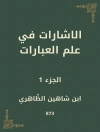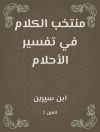In recent years, ethnographic fieldwork has been subjected to analytical scrutiny in anthropology. Ethnography remains anchored in tropes of spatiality with the association between field and fieldworker characterized by distances in space. With updates on the discussion of contemporary requirements to ethnographic research practice, Time and the Field rethinks the notion of the field in terms of time rather than space. Such an approach not only implies a particular attention to the methodology of studying local (social and ontological) imaginaries of time, but furthermore destabilitizes the relationship between fieldworker and fieldsite, allowing it to emerge as a dynamic and ever-shifting constellation.
表中的内容
Introduction: Time and the Field
Steffen Dalsgaard and Morten Nielsen
Chapter 1. Limits and Limitlessness: Exploring Time in Scientific Practice
Antonia Walford
Chapter 2. The Time of the State and the Temporality of the Gavman in Manus Province, Papua New Guinea
Steffen Dalsgaard
Chapter 3. Out of Conclusion: On Recurrence and Open-Endedness in Life and Analysis
Anne Line Dalsgaard and Martin Demant Frederiksen
Chapter 4. Times of the Other: The Temporalities of Ethnographic Fieldwork
Ton Otto
Chapter 5. Surfacing Moves: Spatial-Timings of Senior Home Care
Peter A. Lutz
Chapter 6. Boredom, Rhythm, and the Temporality of Ritual: Recurring Fieldwork in the Brazilian Candomblé
Inger Sjørslev
Chapter 7. Episodic Fieldwork, Updating, and Sociability
Michael Whyte
Chapter 8. Trans-temporal Hinges: Reflections on an Ethnographic Study of Chinese Infrastructural Projects in Mozambique and Mongolia
Morten Axel Pedersen and Morten Nielsen
Afterword: Ethnography between the Virtue of Patience and the Anxiety of Belatedness Once Coevalness Is Embraced
George Marcus
Index
关于作者
Morten Nielsen is an Associate Professor in the Department of Anthropology at Aarhus University and coordinator of the interdisciplinary research network Urban Orders (URO). Recent publications include articles in Journal of the Royal Anthropological Institute, HAU: Journal of Ethnographic Theory, Social Analysis, and Social Anthropology.












